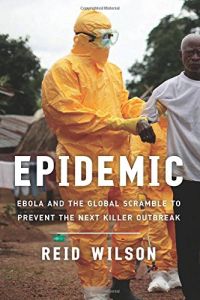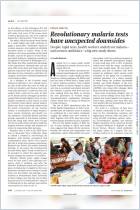Join getAbstract to access the summary!

Join getAbstract to access the summary!
Reid Wilson
Epidemic
Ebola and the Global Scramble to Prevent the Next Killer Outbreak
Brookings Institution Press, 2018
What's inside?
The Ebola outbreak of 2014 was bad. But it could have been much worse.
Recommendation
The Ebola outbreak of 2014 was a terrifying near miss. Amid reports of the ghastly deaths of thousands of West Africans, residents of first-world nations faced the frightening reality that geographic barriers like oceans and deserts offered scant protection from a pandemic: Just one sick person getting on a plane could spread the deadly tropical virus around the globe. In this gripping account, journalist Reid Wilson manages to turn a tale readers have already heard into a suspense-filled page-turner. Through in-depth interviews with American public health officials, Wilson provides riveting new details and a compelling analysis of the outbreak. He also addresses the scientific nuances of immunology with aplomb, providing straightforward, easy-to-understand explanations. getAbstract recommends this book to readers who’d like to understand just how close major metropolises like Dallas, Texas, were to becoming Ebola hot zones. Only sheer luck allowed public health officials to confine the Ebola epidemic to three West African nations, and only concerted effort will keep the next outbreak contained.
Summary
About the Author
Reid Wilson is a national correspondent for The Hill newspaper in Washington, DC. He covers politics, public policy, campaigns and elections.
















Comment on this summary